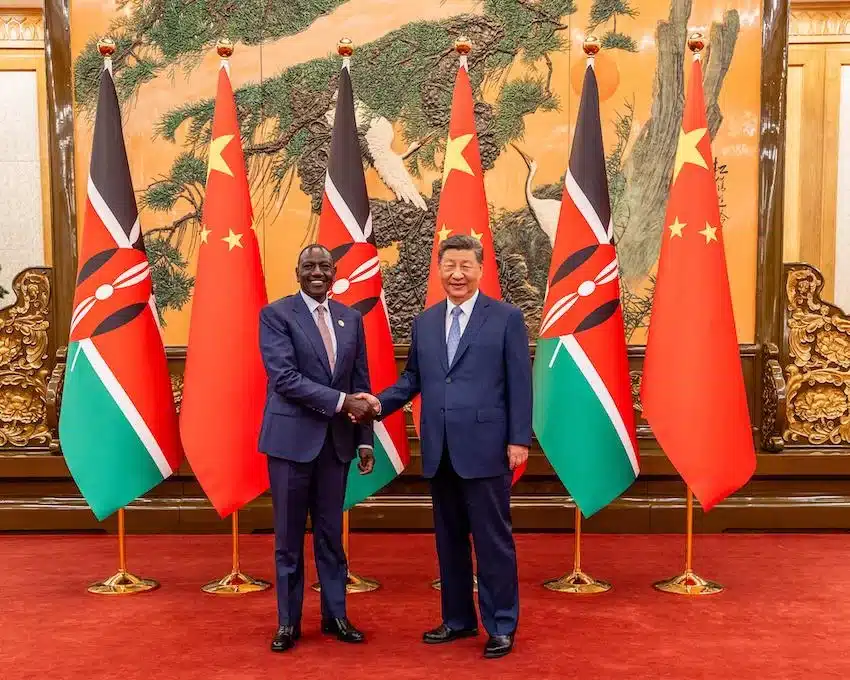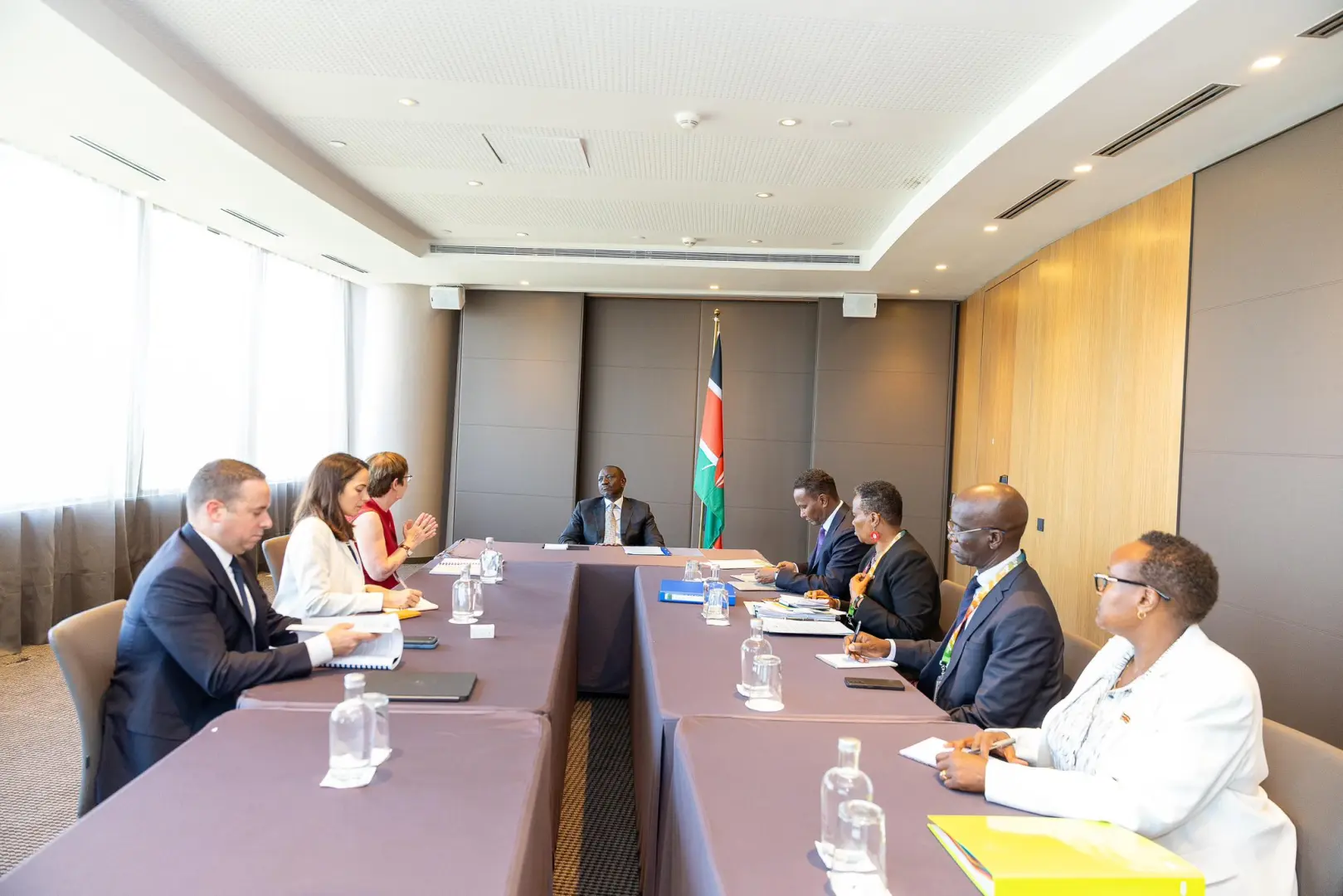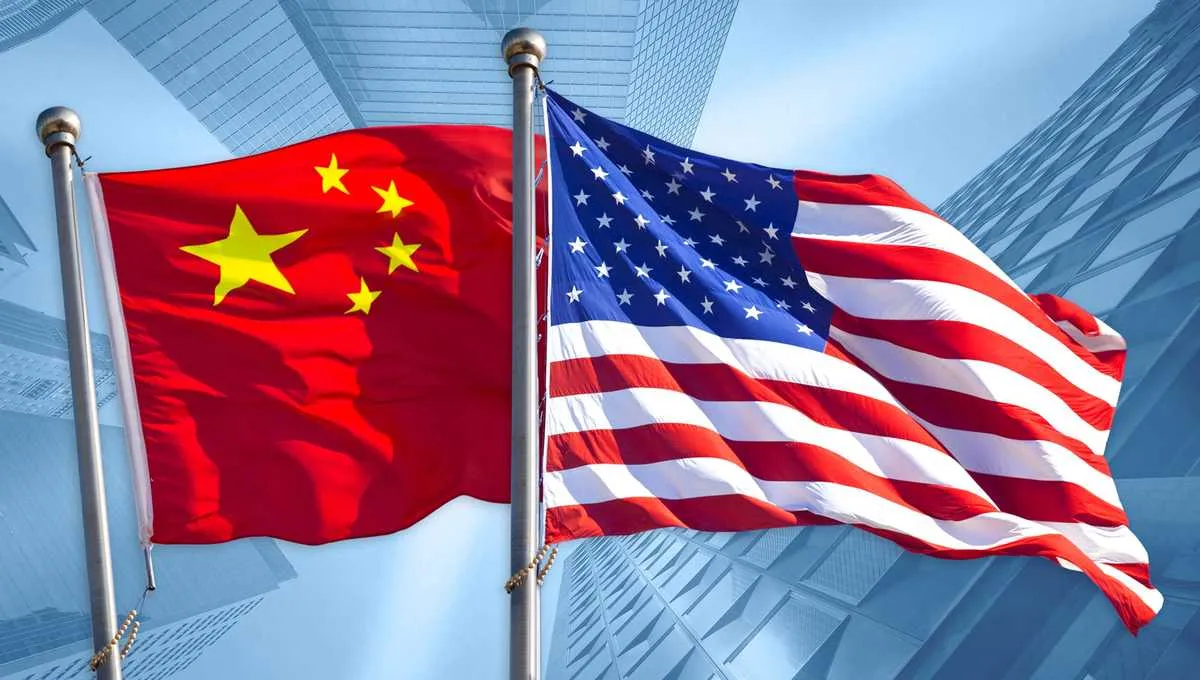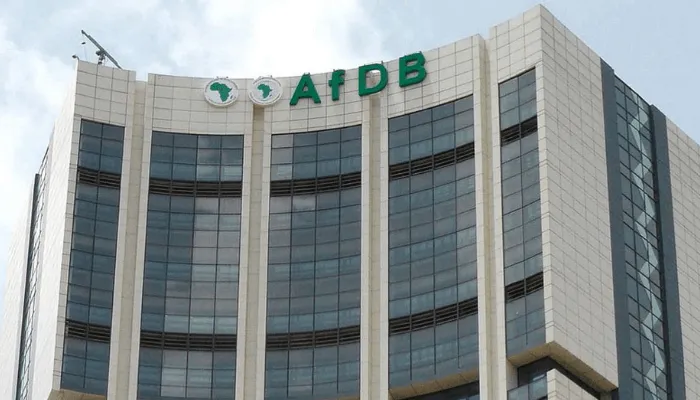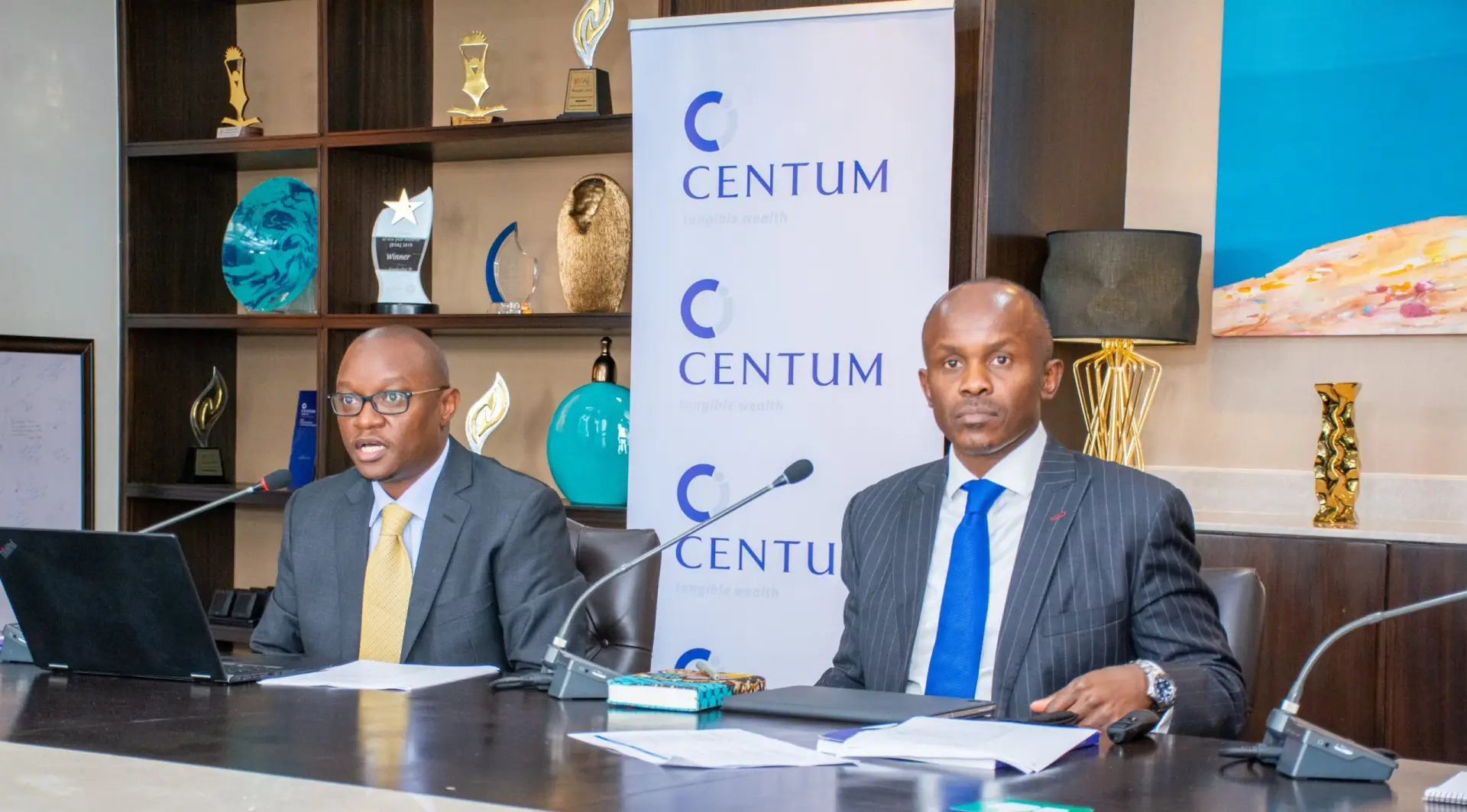Chinese President Xi Jinping, during a meeting with Kenyan President William Ruto, proposed strengthening the China-Kenya strategic partnership across three key areas. This meeting, held on the sidelines of the 2024 Forum on China-Africa Cooperation (FOCAC) Summit in Beijing, signals a new chapter in the already robust relationship between the two nations. The proposals by President Xi emphasize mutual trust, innovation-driven cooperation, and strategic coordination on the global stage, positioning China and Kenya as pivotal partners in the evolving geopolitical landscape.
Deepening the Enduring Friendship and Mutual Support
President Xi Jinping opened his proposal by highlighting the deep and enduring friendship between China and Kenya. This friendship, which dates back to the early years of Kenya’s independence, has been characterized by mutual respect and support. Xi emphasized the importance of maintaining and advancing this relationship, underscoring that both nations should continue to back each other in safeguarding their sovereignty and exploring development paths tailored to their national conditions.
Over the years, China and Kenya have developed a relationship based on shared principles of non-interference, mutual benefit, and respect for each other’s sovereignty. This relationship has been reinforced by China’s significant investments in Kenya, particularly in infrastructure and development projects under the Belt and Road Initiative (BRI). The BRI, a cornerstone of China’s foreign policy, has seen substantial investments in Kenya, with projects like the Mombasa-Nairobi Standard Gauge Railway serving as flagship examples of Sino-Kenyan cooperation.
Xi’s call for mutual trust is also a strategic move to ensure that Kenya remains a key ally in China’s broader geopolitical strategy in Africa. By strengthening ties with Kenya, China secures a crucial partner in the East African region, which is critical for the success of the BRI and other regional initiatives.
Fostering Innovation and Win-Win Cooperation
The second key area proposed by President Xi focuses on fostering innovation and win-win cooperation between China and Kenya. Xi proposed aligning China’s Belt and Road Initiative with Kenya’s “Vision 2030” development plan, which aims to transform Kenya into a newly industrializing, middle-income country by 2030. By aligning these two significant initiatives, both nations can synergize their efforts in areas such as infrastructure development, industrialization, and regional connectivity.
Kenya’s “Vision 2030” has identified several key sectors for development, including infrastructure, agriculture, and information and communication technology (ICT). China’s support in these areas has been instrumental in advancing Kenya’s development goals. For instance, the Mombasa-Nairobi Railway, funded by China, has significantly reduced transportation costs and time, boosting trade and economic activities along the corridor.
In addition to infrastructure, Xi emphasized the importance of cooperation in the digital economy, new energy, trade, poverty alleviation, and agriculture. China’s expertise in digital technology and its leading role in renewable energy present significant opportunities for Kenya. The collaboration in these areas is expected to drive economic growth, create jobs, and enhance Kenya’s competitiveness in the global market.
Moreover, Xi’s proposal for win-win cooperation reflects China’s broader strategy of promoting economic partnerships that are mutually beneficial. This approach aligns with China’s global development initiatives, which aim to create sustainable development pathways for partner countries while advancing China’s economic interests.
Digital Economy and Technological Innovation
One of the most promising areas of collaboration between China and Kenya is the digital economy. Kenya, often referred to as the “Silicon Savannah,” has emerged as a leader in Africa’s technology and innovation landscape. The country’s vibrant tech ecosystem, led by mobile money platform M-Pesa, has revolutionized financial services and inspired a wave of technological innovation across the continent.
China’s technological prowess and experience in developing digital infrastructure can significantly enhance Kenya’s digital economy. Collaboration in areas such as 5G technology, e-commerce, and digital finance could accelerate Kenya’s digital transformation, making it a regional hub for technology and innovation. This partnership could also create opportunities for Kenyan startups to access Chinese markets and investors, further boosting the country’s tech ecosystem.
New Energy and Green Development
Another critical area of cooperation is new energy. Kenya has made significant strides in renewable energy, particularly in geothermal, wind, and solar power. The country is one of the leading producers of geothermal energy in Africa and has set ambitious targets for expanding its renewable energy capacity.
China, a global leader in renewable energy technology, is well-positioned to support Kenya’s green energy ambitions. Cooperation in this sector could involve the development of large-scale renewable energy projects, technology transfer, and capacity building. Such initiatives would not only contribute to Kenya’s energy security but also help the country achieve its climate goals under the Paris Agreement.
Enhancing Strategic Coordination on the Global Stage
The third area of focus proposed by Xi Jinping is enhancing strategic coordination between China and Kenya to uphold fairness and justice on the global stage. Xi called for stronger communication and collaboration between the two nations on international and regional issues, emphasizing the need to protect the common interests of the Global South and promote regional peace and stability.
China and Kenya share a commitment to multilateralism and the principles of the United Nations Charter. Both countries have been vocal advocates for the reform of global governance institutions to better reflect the interests and aspirations of developing countries. In this context, their enhanced strategic coordination could play a crucial role in advancing the agenda of the Global South in international forums.
Promoting Regional Peace and Stability
Kenya, located in the Horn of Africa, plays a pivotal role in promoting peace and stability in a region often plagued by conflict and instability. The country has been actively involved in peacekeeping and mediation efforts in neighboring countries, including Somalia and South Sudan.
China has increasingly positioned itself as a key player in Africa’s peace and security landscape, providing support for peacekeeping missions and conflict resolution initiatives. The strategic partnership between China and Kenya in this area could involve joint efforts to address security challenges in the Horn of Africa, enhance maritime security in the Indian Ocean, and combat transnational threats such as terrorism and piracy.
Advocating for the Interests of the Global South
As major players in the Global South, China and Kenya share a common interest in advocating for the rights and interests of developing countries on the global stage. This includes pushing for fairer trade practices, addressing climate change, and ensuring that the benefits of globalization are equitably distributed.
Xi Jinping’s call for stronger strategic coordination with Kenya reflects China’s broader vision of building a community with a shared future for mankind. This vision emphasizes the importance of cooperation, mutual respect, and shared development in addressing global challenges. By working closely with Kenya, China aims to strengthen the voice of the Global South in international affairs and promote a more just and equitable global order.
Kenya’s Perspective: A Continued Commitment to China-Kenya Relations
In response to President Xi’s proposals, President William Ruto expressed his deep gratitude to China for hosting the FOCAC summit and reaffirmed Kenya’s commitment to further strengthening bilateral relations. Ruto highlighted the success of significant infrastructure projects like the Mombasa-Nairobi Railway, which have been instrumental in Kenya’s development, and called for the further expansion of bilateral cooperation in areas such as infrastructure, energy, and youth engagement.
Ruto also praised China’s global initiatives, including the Belt and Road Initiative (BRI) and the Global Development Initiative, stating that these efforts have played a leading role in fostering unity and cooperation among developing countries. He reaffirmed Kenya’s strong adherence to the one-China policy, which recognizes the People’s Republic of China as the sole legitimate government of China, and expressed a desire to work closely with China in multilateral forums to safeguard mutual interests.
The Significance of the One-China Policy
Kenya’s reaffirmation of the one-China policy is a critical component of its diplomatic relations with China. The policy, which rejects the recognition of Taiwan as a separate state, is a fundamental principle of China’s foreign policy. Kenya’s adherence to this policy not only reinforces its commitment to China but also ensures continued Chinese support for its development agenda.
This stance also reflects the broader consensus among African nations, many of which have long-standing diplomatic ties with China based on the recognition of the one-China policy. By maintaining this position, Kenya aligns itself with the majority of African countries and strengthens its strategic partnership with China.
Bilateral Agreements and Future Cooperation
During the FOCAC summit, China and Kenya are expected to sign several bilateral agreements focused on financing, infrastructure development, and other areas of cooperation. These agreements will likely cover a wide range of sectors, including transport, energy, agriculture, and education, further deepening the economic and developmental ties between the two countries.
One of the key areas of focus is expected to be the financing of new infrastructure projects. Given Kenya’s ambitious infrastructure development plans under Vision 2030, Chinese financing and expertise will be crucial in realizing these projects. This includes the expansion of the Standard Gauge Railway, the development of new ports and airports, and the upgrading of road networks across the country.
In addition to infrastructure, the agreements are likely to include provisions for enhancing cooperation in education and skills development. China’s support in this area could involve scholarships for Kenyan students to study in China, capacity-building programs for Kenyan professionals, and the establishment of joint research and innovation centers.
Conclusion: A Strengthened China-Kenya Strategic Partnership
The proposals made by President Xi Jinping during his meeting with President William Ruto mark a significant step forward in the China-Kenya strategic partnership. By focusing on deepening friendship, fostering innovation-driven cooperation, and enhancing strategic coordination on the global stage, both nations are positioning themselves as key partners in a rapidly changing world.
As China continues to expand its influence in Africa through initiatives like the Belt and Road Initiative, Kenya stands to benefit from increased investments, technology transfer, and capacity-building support. At the same time, Kenya’s strategic location, robust economy, and commitment to multilateralism make it a valuable partner for China in its efforts to promote a more just and equitable global order.
The deepening of the China-Kenya strategic partnership is not only a reflection of the strong historical ties between the two nations but also a testament to their shared vision for the future. As they work together to address global challenges and promote sustainable development, China and Kenya are laying the foundation for a new era of cooperation and mutual prosperity.
photo source: Google
By: Montel Kamau
Serrari Financial Analyst
5th August, 2024
Article, Financial and News Disclaimer
The Value of a Financial Advisor
While this article offers valuable insights, it is essential to recognize that personal finance can be highly complex and unique to each individual. A financial advisor provides professional expertise and personalized guidance to help you make well-informed decisions tailored to your specific circumstances and goals.
Beyond offering knowledge, a financial advisor serves as a trusted partner to help you stay disciplined, avoid common pitfalls, and remain focused on your long-term objectives. Their perspective and experience can complement your own efforts, enhancing your financial well-being and ensuring a more confident approach to managing your finances.
Disclaimer: This article is for informational purposes only and does not constitute financial advice. Readers are encouraged to consult a licensed financial advisor to obtain guidance specific to their financial situation.
Article and News Disclaimer
The information provided on www.serrarigroup.com is for general informational purposes only. While we strive to keep the information up to date and accurate, we make no representations or warranties of any kind, express or implied, about the completeness, accuracy, reliability, suitability, or availability with respect to the website or the information, products, services, or related graphics contained on the website for any purpose. Any reliance you place on such information is therefore strictly at your own risk.
www.serrarigroup.com is not responsible for any errors or omissions, or for the results obtained from the use of this information. All information on the website is provided on an as-is basis, with no guarantee of completeness, accuracy, timeliness, or of the results obtained from the use of this information, and without warranty of any kind, express or implied, including but not limited to warranties of performance, merchantability, and fitness for a particular purpose.
In no event will www.serrarigroup.com be liable to you or anyone else for any decision made or action taken in reliance on the information provided on the website or for any consequential, special, or similar damages, even if advised of the possibility of such damages.
The articles, news, and information presented on www.serrarigroup.com reflect the opinions of the respective authors and contributors and do not necessarily represent the views of the website or its management. Any views or opinions expressed are solely those of the individual authors and do not represent the website's views or opinions as a whole.
The content on www.serrarigroup.com may include links to external websites, which are provided for convenience and informational purposes only. We have no control over the nature, content, and availability of those sites. The inclusion of any links does not necessarily imply a recommendation or endorsement of the views expressed within them.
Every effort is made to keep the website up and running smoothly. However, www.serrarigroup.com takes no responsibility for, and will not be liable for, the website being temporarily unavailable due to technical issues beyond our control.
Please note that laws, regulations, and information can change rapidly, and we advise you to conduct further research and seek professional advice when necessary.
By using www.serrarigroup.com, you agree to this disclaimer and its terms. If you do not agree with this disclaimer, please do not use the website.
www.serrarigroup.com, reserves the right to update, modify, or remove any part of this disclaimer without prior notice. It is your responsibility to review this disclaimer periodically for changes.
Serrari Group 2025

